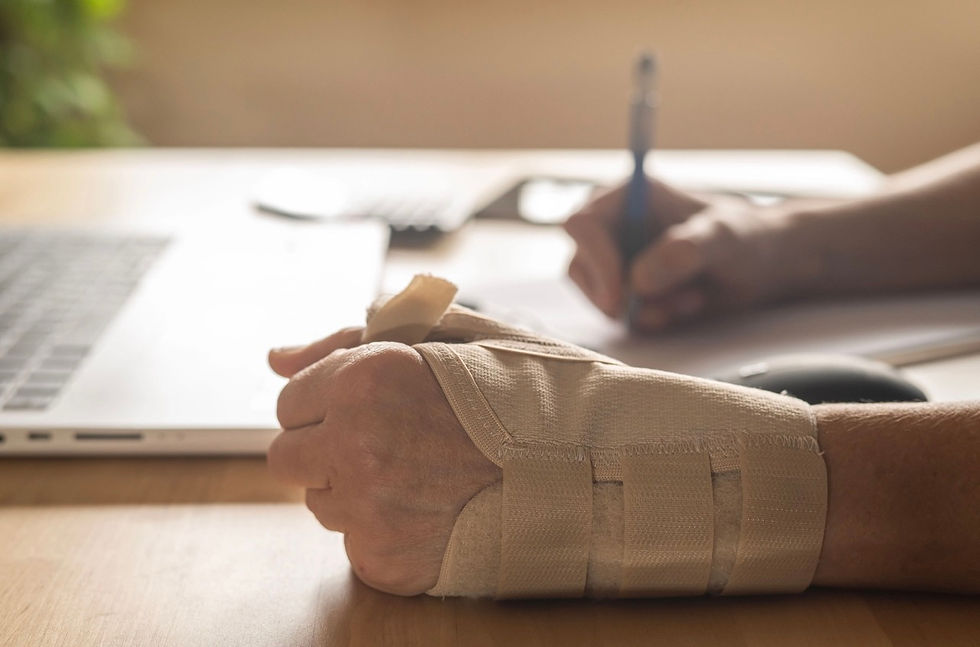Mental Health Claims Under Threat?
- Lexmens Compensation Lawyers

- Jun 22, 2025
- 3 min read
Updated: Aug 9, 2025
The NSW Government is currently considering major changes to workers compensation laws, and if passed, they could make it significantly harder to access support for psychological injuries at work Under the proposed amendments, workers would need to meet a higher threshold to obtain compensation for their psychological injury caused by work.

The most significant proposed changes are summarised below:
1) Workers compensation will only be payable to worker:
for a 'primary psychological injury';
if it arises from a 'relevant event';
where there is a real and direct connection between the relevant event and the worker’s employment – this has changed from the previous formulation of ‘real and substantial’;
where employment is the main contributing factor to the psychological injury; and
a significant cause of the psychological injury is not reasonable management action taken (or proposed to be taken) by an employer, or a worker’s expectations or perceptions of such action.
Relevant events are defined in the WC Bill to include acts of violence, indictable criminal conduct, witnessing traumatic incidents, experiencing vicarious trauma, and even 'being subjected to sexual harassment, … racial harassment, … bullying, or … excessive work demands'.
2) Lump sum compensation will not be paid for permanent psychological injuries unless the worker is assessed at more than 30% whole person impairment.
3) The threshold to make a Work Injury Damages (WID) claim increases from 15% to 31%.
4) The threshold to receive weekly payments beyond five years is being raised from 21% whole person impairment to 25% from October 2025 and greater than 30% from 1 July 2026.
The WC Bill introduces a more structured process for those matters involving ‘relevant events’, with the claims pathway sitting primarily with the insurer:
within 42 days of receiving a claim, the insurer must determine whether to accept or decline the claim;
if the insurer disputes liability, the worker can seek internal review of the decision by the insurer;
following this, the worker may lodge an application to the NSW IRC to determine if the relevant conduct occurred;
if the NSW IRC finds the conduct did occur, but the insurer continues to dispute the claim, the dispute may be referred to the Personal Injury Commission for determination; and
throughout this process of determination and potential dispute over liability, the worker is entitled to weekly payments calculated with reference to the worker’s current work capacity and their pre-injury average weekly earnings, and a separate payment of up to $7,500 for treatment costs.
Applying the Permanent Impairment Rating Scale (PIRS) that is used to assess WPI for psychological injuries in NSW, a worker will need to have an extreme level of impairment in order to exceed 30% WPI, including being unable to live alone and needing supervised care as they pose a risk to themselves if unsupervised; never leaving their place of residence; unable to form or sustain long term relationships with pre-existing relationships ending and being unable to care for dependants; being only able to read a few lines before losing concentration; difficulties following simple instructions and an inability to work in any meaningful capacity.

Why this matters to you
If you've ever felt burnt out, bullied, or mentally unwell due to work, these changes may impact your ability to seek fair compensation.
Stress, anxiety, depression, these are real injuries. But under the proposed laws, proving your case could become more difficult, more expensive, and more drawn out.
That’s a major concern for workers in high-pressure roles or toxic environments, people already stretched thin and seeking support, not barriers.
How Lexmens approaches this
At Lexmens, we know psychological injuries don’t always leave visible scars, but they’re just as real. That’s why we take extra care when handling mental health claims.
We stay up-to-date with every law reform, and if these changes go ahead, we’ll be ready to fight for what’s still possible under the new system, or challenge unfair rejections if needed.
You're not alone in this. Whether you're thinking about making a claim or have already been knocked back, we’re here to help, with clarity and compassion.

Worried about how these changes could affect you?
Book a free consultation with our team at Lexmens. We’ll explain your options in plain English, no pressure, no confusion, just answers.



Comments